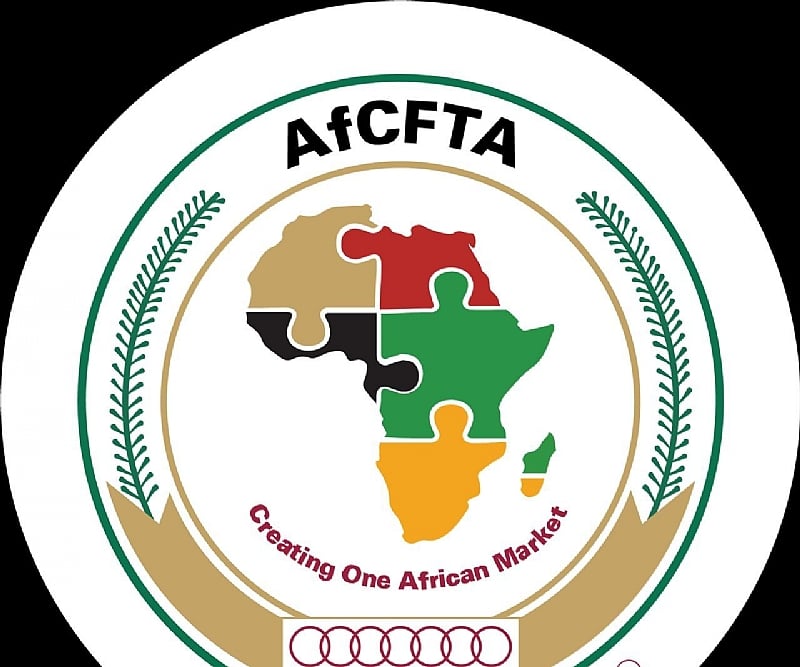Ghana’s pursuit of fully benefiting from the African Continental Free Trade Area (AfCFTA) is encountering significant legal obstacles, as revealed in a comprehensive report developed through a joint effort involving the University of Professional Studies Law School and prominent law firms. Titled “A Situational Analysis of Ghana’s AfCFTA Preparedness and a Review of the Legal, Policy, and Regulatory Framework,” the report delves into the nation’s legal environment, uncovering potential roadblocks to successful AfCFTA implementation. This detailed analysis serves as a critical assessment of Ghana’s readiness for the continental free trade area and highlights specific areas requiring immediate attention.
One of the most prominent concerns raised by the report is the potential conflict between existing Ghanaian investment regulations and the principles of free trade envisioned by the AfCFTA. Regulations such as mandatory registration with the Ghana Investment Promotion Centre (GIPC) and the substantial minimum capital requirement of $500,000 for foreign investors could deter foreign businesses from engaging in the AfCFTA market. These provisions, while intended to protect domestic interests, may inadvertently create barriers to entry for businesses from other African nations, thus undermining the core objective of the AfCFTA to foster intra-African trade and investment.
Further complicating matters are restrictions on foreign ownership and use of land and real estate within Ghana. These limitations pose a particularly significant challenge for sectors heavily reliant on land resources, including agriculture, tourism, and real estate development. By limiting access to land for foreign investors, these regulations can stifle investment in these crucial sectors, impeding their growth and hindering the potential for enhanced intra-African collaboration within these industries. This land ownership issue represents a key area where regulatory reform is necessary to align Ghana’s laws with the AfCFTA’s principles of free movement of goods, services, and capital.
Beyond Ghana’s internal regulations, the report emphasizes the broader need for greater harmonization of laws, regulations, and standards across the entire African continent. Disparities in legal frameworks across different member states can create complexities and inconsistencies that hinder the smooth flow of trade and investment. A more unified legal landscape is essential to fostering a truly integrated and seamless African market, maximizing the benefits of the AfCFTA for all participating nations. This harmonization effort requires close collaboration among African countries to develop common standards and regulations that facilitate trade while addressing specific national concerns.
Within Ghana itself, internal inconsistencies and overlapping regulations present a separate set of challenges to seamless trade facilitation. The report points to the negative impact of bureaucratic procedures, a lack of transparency in regulatory processes, and inefficient coordination among various government agencies. These internal inefficiencies can significantly increase the costs of doing business and create obstacles to the smooth movement of goods and services within the AfCFTA framework. Addressing these internal challenges is crucial for Ghana to create a conducive environment for businesses to thrive and take full advantage of the opportunities presented by the continental free trade area.
In summary, while Ghana has taken initial steps towards aligning its legal framework with AfCFTA obligations, the report’s findings underscore the urgent need to address these identified challenges. Overcoming these legal and regulatory hurdles is paramount for Ghana to fully realize the potential benefits of this historic trade agreement. This necessitates a comprehensive review and reform of existing laws and regulations, improved coordination among government agencies, and a commitment to greater transparency in regulatory processes. By addressing these issues, Ghana can create a more welcoming and efficient environment for intra-African trade and investment, paving the way for greater economic growth and integration within the AfCFTA framework. The report’s findings offer a crucial roadmap for Ghana to navigate these challenges and maximize its participation in the landmark continental free trade area. The success of the AfCFTA depends on individual member states like Ghana proactively addressing these internal and continental legal complexities to create a truly integrated and prosperous African market.














